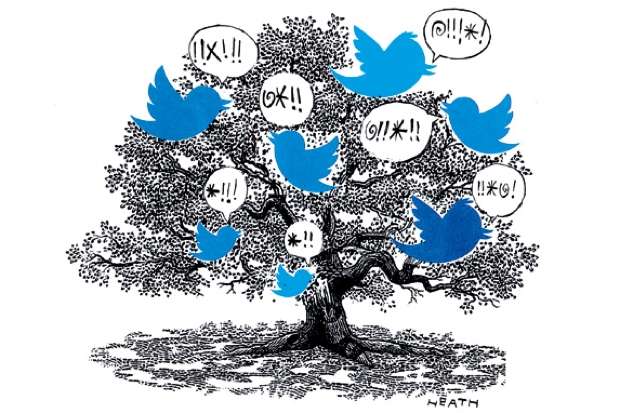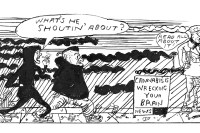The keyboard weirdos bombarding Labour MP Jess Phillips with threats, after she scoffed at the idea of marking International Men’s Day with a debate in parliament, are cretins of the highest order. Pathetically hiding behind made-up names and cartoon avatars, they harangue a politician for saying something they disagree with. Not by saying to her ‘I disagree with you,’ but rather ‘I think you should be raped’. If you know one of them, please give them a clip round the lughole, and perhaps confiscate their gadgets.
But should these morons be investigated by the authorities? I’m not so sure. Ms Phillips has reported some of her ugly maulers to the police. I think that could be a mistake. For the fact is — and it’s not a pleasant fact, I admit — that sometimes a threat of violence is not really a threat of violence. It is ill-formed political anger, an expression of dissent by those who, for whatever reason, lack the ability, or desire, to say what’s really on their minds. And maybe, just maybe, we should tolerate that in the name of freedom of speech.It was announced today that the court case against Bahar Mustafa, the student-union official who tweeted the hashtag #killallwhitemen, is being dropped. Good. Only the most literally minded saddo could consider that hashtag a death threat. I know from the death threats I have received that they’re often expressions of political fury designed to rattle you. I’ve been threatened by email and even via voicemail (I’m not on Twitter). Whether the fuming tosspots were telling me they would strangle me with my laptop cable or ‘smash every one of your teeth with a sledgehammer’, something about their threats felt unreal. They were clearly overemotional responses to something I had written. They were, in essence, next-level green-ink letters.
I did feel unnerved when someone hand-delivered a bag of excrement to my office, with one of my articles in the excrement. The hand-delivery aspect freaked me out. I looked over my shoulder more than usual after that. But I didn’t report it to the police. I guess because I’m a free-speech fundamentalist, and one could definitely make a case that pooping into a bag is a form of expression. This person was saying, ‘I really hate what you wrote’, only with faeces rather than words. (Here’s the article that caused them literally to ‘lose their shit’.) I am not for one minute saying people should have carte blanche to make violent threats. But we have to take into consideration the context. Facebook gets it right. It removes ‘credible threats of physical harm to individuals’, judging the credibility by such things as ‘a person’s physical location or public visibility’. So it might leave up a comment that says of a politician, ‘You should be shot’, but take down, and even report, a violent threat made by a man to his ex. This is right. Threats of death against public figures are usually political bluster and blah; threats of death between intimates are a very different affair. To see the censorious consequences of using the law to punish politics-as-threat, consider the case of Caroline Criado-Perez, the feminist who was subjected to Twitterfury after she campaigned to have a woman put on the £10 note. Two of her trolls, both rather socially inadequate individuals, were sent to jail. Many people think they were imprisoned for making death threats. This isn’t quite true. The Offences Against the Persons Act of 1861 makes it an offence to ‘write’ or ‘utter’ a death threat, and the Criminal Justice Act of 1988 makes it a crime to make someone fear ‘the immediate use of unlawful violence’. But Ms Criado-Perez’s trolls weren’t punished under those laws. They were found guilty of an offence under the Communications Act 2003, which outlaws ‘grossly offensive’ or ‘indecent, obscene and menacing’ messages. They were sent to jail for being disgustingly offensive. And my view is that to destroy two rather sad people’s prospects because they sent idiotic drunken tweets is a greater moral ill than to write threatening things on the internet. As is often the case with free speech, the US does it better than us. In 1966, at a demonstration in Washington against police brutality, an 18-year-old agitator said that if he had a gun he would shoot then president Lyndon B Johnson. He was convicted of making a death threat. His conviction was later overturned by the Supreme Court, on the basis that his threat was actually ‘political hyperbole’, an ‘idle threat… misconstrued speech’. This is precisely what we have in the internet age, and then some: non-stop political hyperbole, spluttering fury, threats that aren’t really threats but rather are a ‘screw you’ with bells on. And, I’m sorry Jess Phillips, but we must think very carefully indeed before reporting political hyperbole to the police. Freedom of speech can get ugly. But the censorship of hyperbole or dumb, infantile anger is uglier still.






Comments